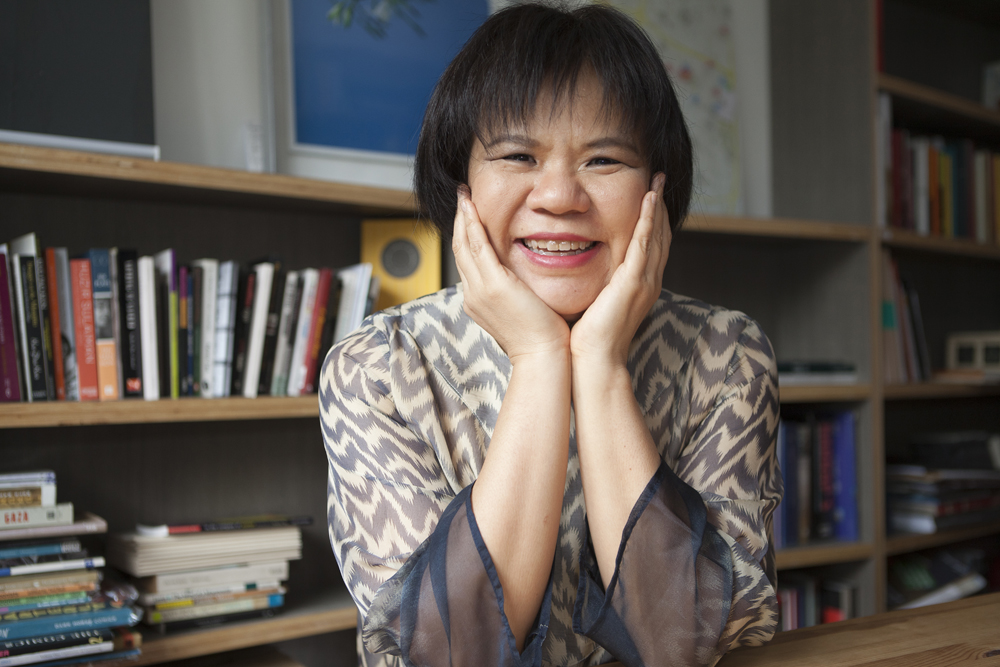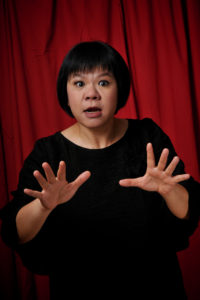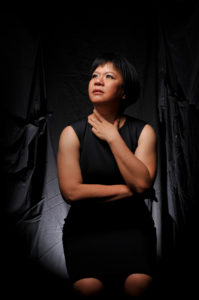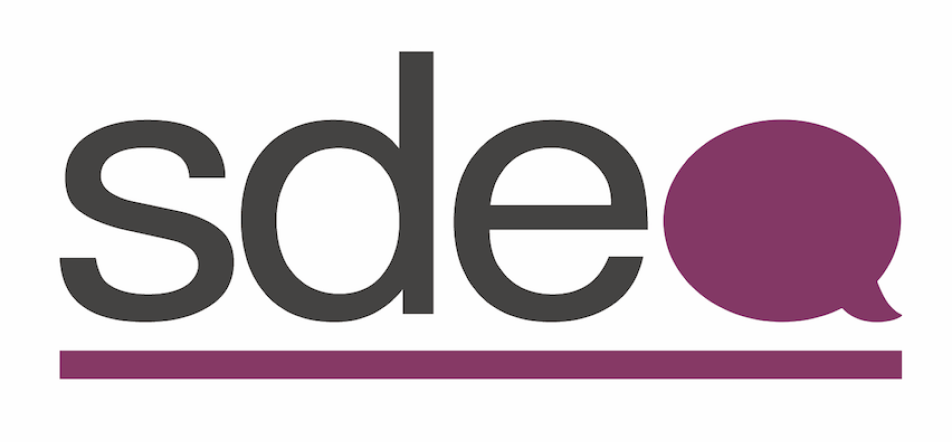SDEA Spotlight: Verena Tay
by SDEA

SDEA Spotlight is a series of short interviews with SDEA members that peel back the curtain behind their practice, their beliefs about arts and drama education and their influences.
Verena Tay has been a member of SDEA since 2002. Verena Tay is a seasoned theatre practitioner, published writer, editor and storyteller. For more information, please visit www.verenatay.com.
1. What are you working on at the moment?
I started my PhD studies in Creative Writing at Swansea University, Wales, on 1 Oct 2016. Under this programme, I will be writing and completing my first novel.
2. What’s the direction of your work? Has it changed over the years?
My artistic and professional careers have evolved tremendously over the years.

I first started out in theatre at a national level as a performer in 1986, then I became a director and a playwright by the early 1990s. Between 1996 and 1998, I worked full-time as an actor-faciliator with The Necessary Stage; I did a lot of work in schools doing DIE and TIE, plus began my path as a solo performer. During 2001-2002 while conducting self-training, I became interested in voice production, which then led me to pursue an MA in Voice Studies at the Central School of Speech and Drama (2003-04). Around the same time, I became a storyteller.
My participation in the renown writing residency, the International Writing Program at the University of Iowa between Aug to Nov 2007, changed my artistic focus. Gradually, I moved away from being an active theatre practitioner to becoming more involved in the Singapore literary scene as a writer and editor. I completed a part-time, long distance MFA in Creative Writing focusing on fiction at the end of 2014 with the City University of Hong Kong.
Because most of my plays have been published, I am fortunate that every now and again various people/institutions have wanted to produce them. Thus, I am still known as a playwright.
Apart from the two-year stint with The Necessary Stage (the only period in which I was employed full-time in theatre), I have worked in public affairs, marketed books, and edited newsletters and books on teaching and learning issues in higher education. Between 2005 and 2016, I taught voice, speech and presentation skills part-time at the National Institute of Education, Nanyang Technological University and other institutions, as well as conducted numerous public workshops in creative writing and storytelling.
3. What is a dream project that you hope to do?
My first novel. It has been in my head for many, many years. It must materialise somehow. The elevator pitch (in terms of genre, and not the actual writers) for the concept is: "Amy Tan meets Neil Gaiman".
4. How did you start out doing what you do?
As a child, I read a lot. Later from secondary school onwards, I was theatre-crazy for over twenty years, grabbing whatever opportunity I had to perform/direct/write/learn. Throughout my life, it has also been a priority for me to find means to express myself artistically (more so than cultivating a straightforward career in an 'acceptable' profession or to settle down and create my own family).
5. How do you keep your work fresh?
Being in tune with my gut that tells me which projects/art forms I need to focus on for X period of time. Attending lots of workshops. Spending time and money on different degrees. Reading. Watching shows. Trying all sorts of activities. Travelling. Collaborating with others.
6. What do you think makes a perfect drama educator?
Passion. Interest. Knowledge based on deep personal practice. A desire to nurture others and facilitate growth in their skills and understanding of life.
7. In one word, sum up your drama education journey.
Adventure
8. Why is drama important? Why should it be taught in schools?
Drama allows students a safe space to experience and experiment with life in its visceral 3-D complexity. The understanding of oneself and how to relate to others that one gains through participation in dramatic activities is far deeper than just mere intellectual study (if the student is fortunate to study the humanities in school). If the student does not study the humanities at all, it is all the more necessary that he/she study or take part in drama to develop holistically as a human being.
9. Who was the drama educator that has the most impact on you?
Kuo Pao Kun. I was extremely blessed to have studied under and worked with him at the start of my theatrical career. For instance, I learnt the following two principles from KPK that subsequently shaped my own playwriting practice:
- The importance of, and how to mine, one’s past experiences and multicultural roots to create plays.
- The process of devising plays with a diverse group of people based on their experiences.
10. What is your most memorable moment in the classroom/on stage?
When most people speak, they just automatically open their mouths and let the words come out. In the process of doing so, they believe that they are communicating effectively. During my twelve years of teaching voice and speech, it never ceases to amaze me how people react to the simple, but fundamental, concept behind cultivating oral expressiveness: to communicate effectively, one has to actively mean every word one utters, otherwise one ends up making a lot of noise and no sense. Sensing their 'duh' moment of enlightenment is always memorable.
11. Share a drama activity that you love to do.
When students develop a gesture and expand/contract the size of that gesture between a range from 0 (neutral body) to 10 (most expansive), they feel safer to experiment with the limits of their physical expressivity.
12. What do you hope to see in Singapore's drama/theatre landscape in future?
Bigger, better, more inclusive.
13. In what ways was membership to SDEA helpful to your practice?
It is good to be part of a larger community. You are not alone. You can share your woes with others, find kindred souls and learn from more experienced people.
Also, SDEA does organise a variety of workshops and programmes that can help you become a better drama educator and theatre practitioner. I have attended some of these courses before and have benefitted from the experience.
Don't miss the launch of Verena Tay's second book of short stories Spaces: People/Places. At the launch/reading, Verena will also talk about her other books, Spectre: Stories from Dark to Light, In the Company of Heroes, Victimology, and The Car and Other Plays. The launch will take place on Friday, 21 April 2017 at 7pm at BooksActually (9 Yong Siak Street).
In July, look forward to the production of Verena's award-winning play, The Car which has been commissioned by The Esplanade. The performance produced by Our Company will run from 4 to 7 July 2017 and is specifically targeted for schools at The Esplanade's Theatre Studio as part of the Feed Your Imagination series. Get your tickets here.



